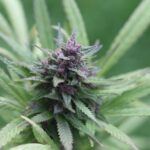The world of cannabis is vast and varied, with numerous compounds offering unique benefits. Among these, THCA (tetrahydrocannabinolic acid) has gained attention for its potential therapeutic properties. Unlike its more famous counterpart THC, THCA is non-psychoactive, making it an attractive option for those seeking the benefits of cannabis without the high.
Understanding THCA
THCA is a cannabinoid found in raw and live cannabis plants. It is the precursor to THC, the compound responsible for the psychoactive effects of cannabis. When cannabis is heated through smoking, vaping, or cooking, THCa flower dosage undergoes decarboxylation, converting into THC. This transformation is why raw cannabis does not produce a high.
Potential Health Benefits
Research into THCA is still in its early stages, but preliminary studies and anecdotal evidence suggest several potential health benefits:
- Anti-inflammatory Properties: THCA may help reduce inflammation, making it a potential option for those with arthritis or other inflammatory conditions.
- Neuroprotective Effects: Some studies indicate that THCA might protect brain cells, offering hope for conditions like Alzheimer’s and Parkinson’s disease.
- Anti-emetic Benefits: THCA could help alleviate nausea and vomiting, particularly in patients undergoing chemotherapy.
- Appetite Stimulation: Like THC, THCA may stimulate appetite, which can be beneficial for individuals with eating disorders or those undergoing treatments that reduce appetite.
Consumption Methods
To harness the benefits of THCA, it’s important to consume it in its raw form. Here are some popular methods:
- Juicing: Fresh cannabis leaves and flowers can be juiced to create a nutrient-rich beverage. This method preserves the THCA content.
- Raw Consumption: Adding raw cannabis to salads or smoothies is another way to consume THCA without converting it to THC.
- Tinctures: Some manufacturers offer THCA tinctures, which can be taken sublingually for quick absorption.
Case Studies and Research
While comprehensive clinical trials are limited, several studies and case reports highlight the potential of THCA:
A study published in the “British Journal of Pharmacology” explored the anti-inflammatory effects of THCA, finding it effective in reducing inflammation in animal models. Another research article in “Neurotherapeutics” discussed the neuroprotective properties of cannabinoids, including THCA, suggesting potential benefits for neurodegenerative diseases.
In a notable case, a patient with epilepsy reported significant reductions in seizure frequency after incorporating THCA into their regimen. This anecdotal evidence aligns with ongoing research into cannabinoids for seizure management.
Legal Considerations
The legal status of THCA varies by region. In some areas, it is classified similarly to THC, while others recognize its non-psychoactive nature and allow its use. It’s important for consumers to understand local regulations before purchasing or using THCA products.
Choosing Quality THCA Products
When selecting THCA products, consider the following factors:
- Source: Opt for products from reputable growers who use organic and sustainable practices.
- Testing: Ensure products are lab-tested for purity and potency, with results available for review.
- Formulation: Choose a product that aligns with your preferred consumption method, whether it’s raw flower, tincture, or another form.
Conclusion
THCA offers a promising avenue for those seeking the therapeutic benefits of cannabis without psychoactive effects. With potential applications ranging from anti-inflammatory to neuroprotective, it represents an exciting area of research and use. As the understanding of THCA grows, it may become a staple in holistic health practices. For those interested in exploring cannabis for wellness, THCA provides a compelling option worth considering.


